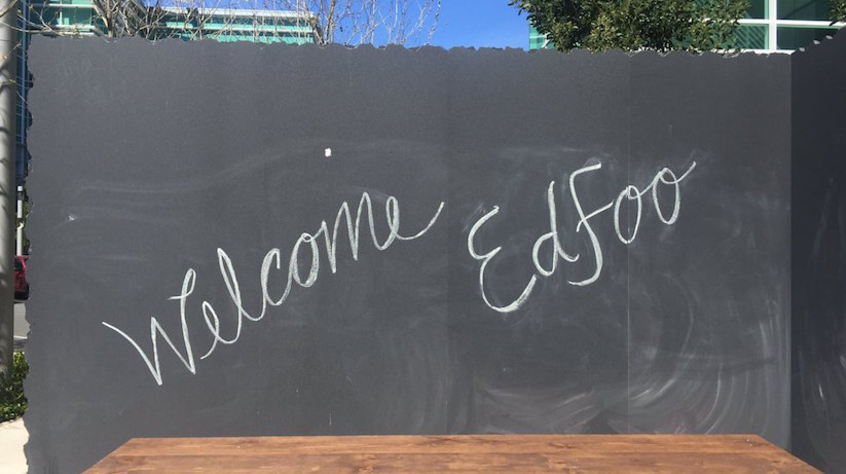Last week, we attended the Education and Lifelong Learning Foo Camp (Ed Foo) at the Googleplex in Mountain View, CA, which convened experts from across the learning spectrum to forge new connections and collaborations. The second annual “unconference” drew fired-up changemakers, many who commented on our country’s current social and economic challenges, expressing that education and civic innovation are more important than ever. Amid this time of uncertainty, we observed four themes to chart a path forward:
- Data needs doubt. Attendees had a lot to say about measurement in the classroom. Teachers were emphatic that No Child Left Behind has left their students without the skills they need to succeed. In a lightning talk titled “Mismeasurement of School’s Vital Signs,” Steve Rees, President of K12 Measures shared startling stats about the misuse of testing data. In a recent study, teachers made incorrect inferences about data 48% of the time. In “Lies, Damn Lies, and Learning Analytics,” Adam Black of Macmillan Learning offered hope, pointing toward techniques for better measurement, which include prioritizing small data, considering context, and starting with the question, not the data.
- Human-centered learning makes a comeback. Complementing a move away from traditional metrics, teachers embrace notions such as curiosity, passion, play, and discovery. Participants hailed classic figures such as Seymour Papert, a pioneer of inquiry-based learning, and Fred Rogers of children’s television for their human-centered approaches. At the college level, administrators emphasized the importance of the human connection through video chat in online classes. Seeing classmates in their PJs creates deep bonds not found in other learning experiences.
- Lifelong ed demands a new model. Attendees widely agreed that while learning spans beyond the traditional education system, our institutions haven’t yet caught up. George Siemens, an education researcher at the University of Texas Arlington, said of higher education, “We’re moving from a 4-year relationship to a 40-year relationship with learners.” Sergio Marrero of Anyone’s Learning presented “the Degree is Dead,” which detailed how the current system leaves many students without the skills they need to gain meaningful employment. His startup works with industry and universities to link courses and certificates tojob opportunity. One thing is clear: We’ll need more collaborative solutions like this to bridge the gaps.
- Dream big if you want to shape the future. Many wonder what tomorrow will bring, but few dare to imagine what it will look like. Ruth Wylie of Arizona State University’s Center for Science and the Imagination and Alan Gershenfeld of E-Line Media hosted a session on envisioning a more positive future. They spoke of their work with Hollywood filmmakers to shape stories that inspire hope rather than fear. Tom Kalil, former Deputy Director for Policy at the White House’s Office of Science and Technology Policy, urged institutions to dream bigger, citing the Department of Energy’s ambitious innovation vision as an example. Russell Schilling of Digital Promise has heard the call. He shared his work to build a DARPA-inspired research agency for education to identify promising moonshot investments to solve big learning challenges.
Want to see more from Ed Foo 2017? We’ve compiled our favorite highlights here.
Photo by Kelly Mendoza


